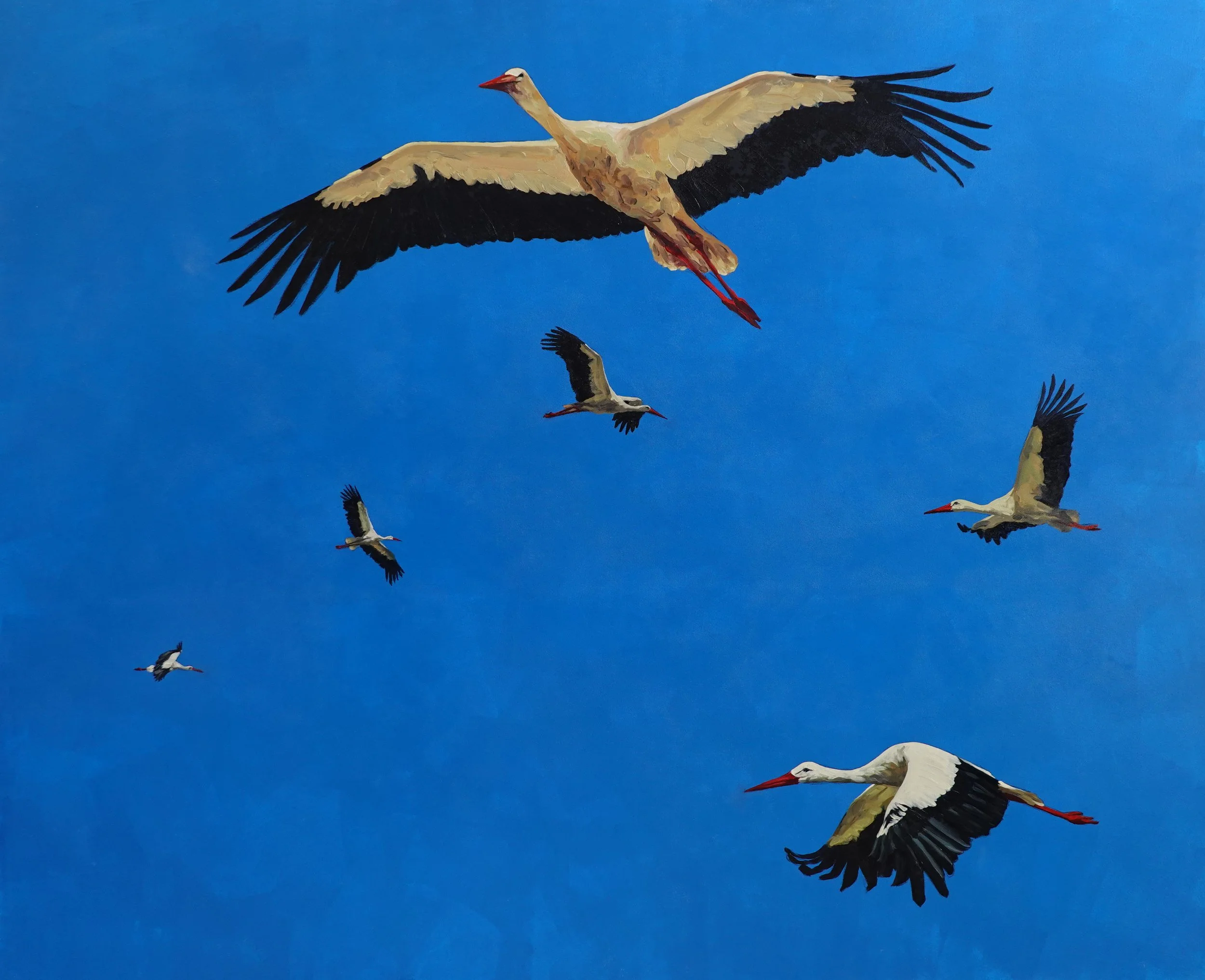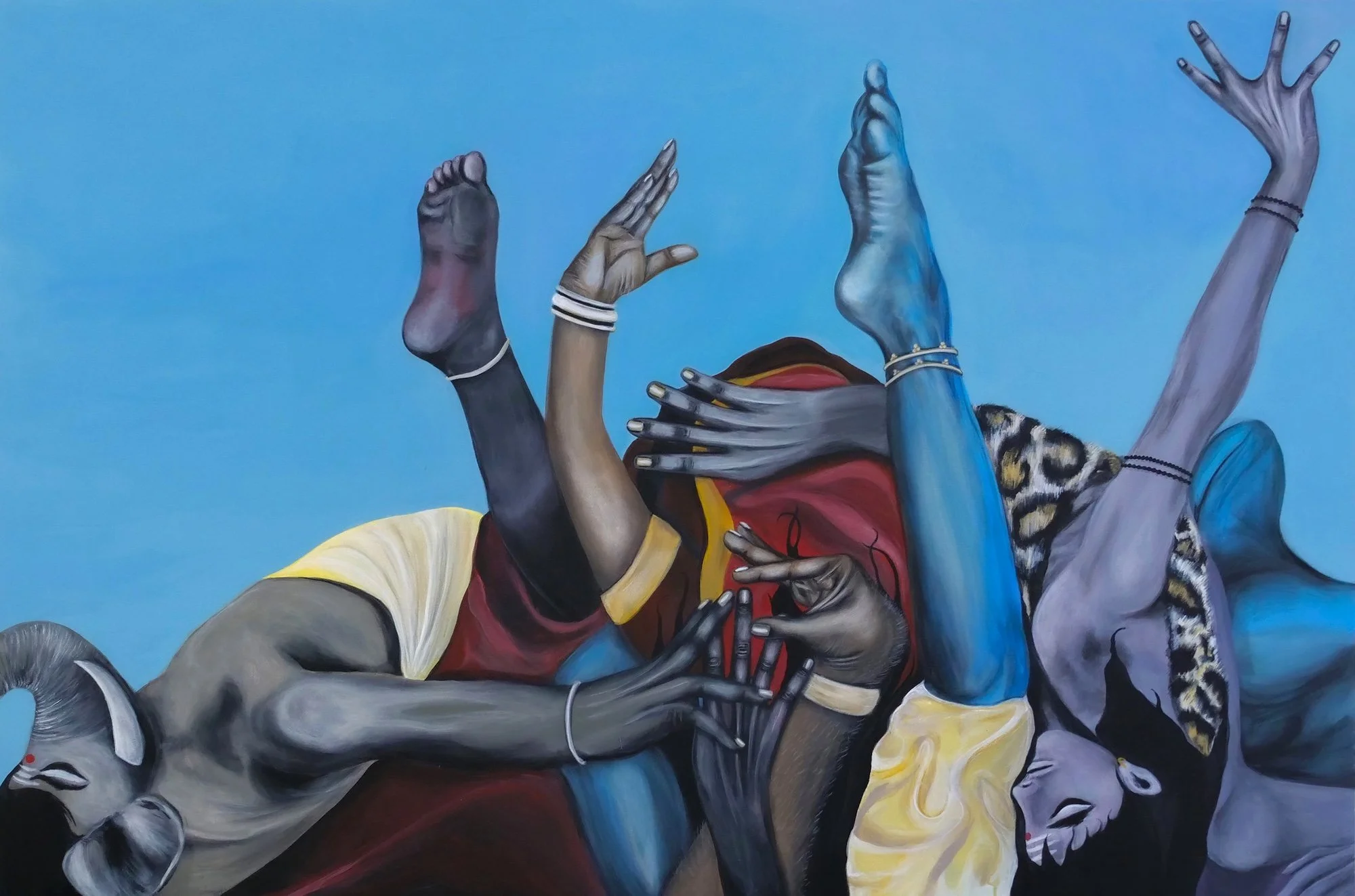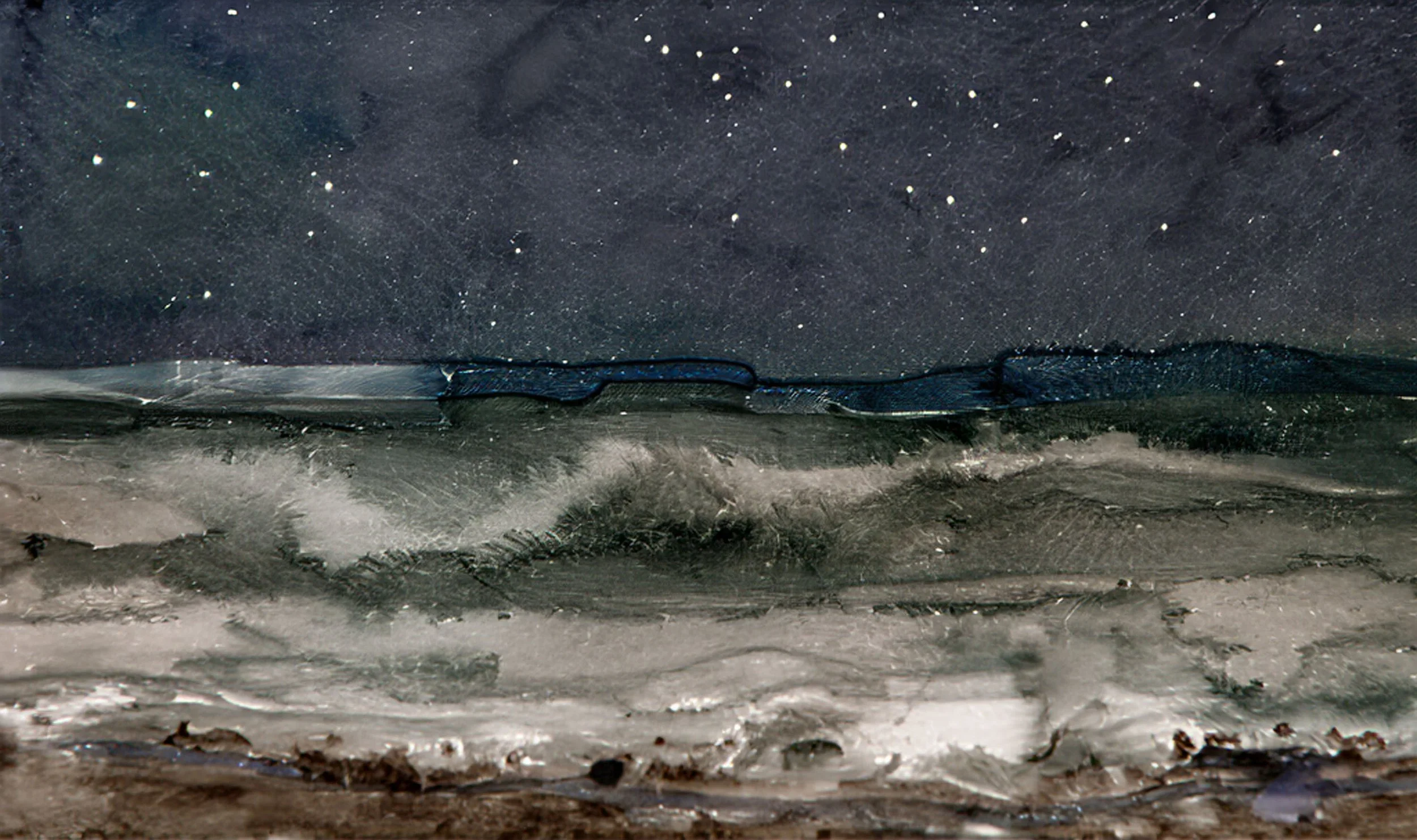10 Questions with Nick Metz
If you asked for the rawest depiction of his being, Nick Metz would do nothing more than step back and let you explore his studio. Being a visual artist, Nick channels his entire self into every piece he creates. This is his purest form of self-portrait. Nick was trained in traditional realism and often looked back to masters such as Sargent, Tuke, and Cadmus and others to help inform his craft. Realism is merely a tool for Nick to express himself and his concepts and ideas. However, Nick Metz is interested in the prospect of pushing the boundaries of realism and exploring different media and subject matter.
Specifically, Nick is focused on the role of masculinity in society and what “compromises” masculinity. What traditionally “feminine” actions or objects impact virility? What makes a man a man? Who/What determines masculinity? Why does society label and condemn men who step outside the general guidelines of masculinity? How does this vary by religion, race, culture, and background? Nick Metz explores these concepts and themes throughout his work in light of his own experiences and quandaries with these models.
Nick Metz is a 21 years old artist studying for his BFA in Painting at the Savannah College of Art and Design. Metz currently resides in Hillsdale, New Jersey, and Savannah, GA. His work explores themes of portraiture and masculinity. He’s been exhibited locally, nationally, and internationally. Recent exhibitions include Ridgewood NJ, Lacoste France, and Brooklyn, NY.
INTERVIEW
Before talking about your art, could you tell us about yourself? Who is Nick Metz?
When I anticipate, when I experience, and when I then reflect, I realize that I have different realities. Nick Metz is an organized mess. He is a focused daydreamer. Nick is an insecure egotist. He is an extroverted introvert. And those variations between intention, reality, and then - satisfaction? Regret? Confusion? - drive me to the next interaction, experience, and creation. But hopefully, there are constants somewhere between the initial desire and the final result.
I try to make a difference through my life - and through my art. I hope to help people to see themselves and the world more clearly, whether it be because of, or even in spite of, what I've tried to convey. I want to blur the existing lines - traditional/modern or masculine/feminine or conservative/liberal - so much that we have to either redraw those lines, change the standard, or let it go completely. I don't want to be the firebrand always demanding a change in people's beliefs, but want to make people see, think for, and challenge themselves. I want to make my mark by leaving the impression that, if most successful, it is so deep that the viewer doesn't even realize it came from me. Art is just one way of doing that.
Lunar Nick Metz©
What kind of education or training helped you develop your skillset?
I knew that I would be an artist - no, painter - from the age of 12, if not before. When asked: architect? I replied NO; plaintively, graphic designer? NO; then, starving? (well, we'll see). My education as an artist commenced from not just my training but my experience. I developed my love for art through study with Diana Gibson at the Ridgewood Art Institute in New Jersey, USA, where I learned a deep appreciation for Traditional Realism and the importance of classical techniques. I began to understand the inherent beauty, message, and sensuality in the works of the Masters - and began to see how fundamental their lessons are to every future artistic movement - whether traditional, adaptive, or rebellious in nature.
I am currently completing my BFA at Savannah College of Art & Design, with a Major in Painting and a triple Minor in Museum Studies, Art History, and Business & Entrepreneurship. My faculty has constantly encouraged and challenged me to develop my own vision, message, and style, and I've learned much to prepare me for my future. For a summer, I interned as an Assistant Curator and Social Media Manager for the Assembly Room Gallery in New York City. I found the opportunity to interact with in-house and outside curators invaluable in understanding the process of exhibition.
Throughout, I've used my experience in travel to broaden my vision of life and art. Whether in Portugal or Central America or France or Taiwan or Austria or Germany or Canada or the US, I've sought out the art and lessons in the museums, the galleries, and, more important, everyday life.
Please describe the intention behind your art. How do you successfully express this intention?
Maybe I'll come to change this view over time, but right now, I think my "intention" varies from piece to piece - or at least suite to suite. Of course, each begins with a concept, but my anticipated relation to the viewer depends on my mood, purpose, and, ultimately the wanderings of my emotions and imagination. For some pieces, I simply want to convey my thoughts and feelings - or sometimes even more simply, present a person, a place, a thing, a situation - and leave the work out there, take it as you will. For other pieces, I want to engage the viewer more directly, insinuating a question, or provoking a response. For example, much of my current work questions the boundaries of the traditional concept of masculinity: should men be proscribed from the enjoyment of traditionally "feminine" activities or traits? in openly embracing such traits, isn't a man exhibiting, even more, the "masculine" trait of courage and defiance? Here, I think that the use of classical styles and techniques expresses this tension even more keenly by portraying men in a traditional (i.e., strong, if you will) manner, yet with a twist - and implicitly asking the viewer whether and how that matters.
Obverse #1. Nick Metz©
Obverse #2. Nick Metz©
Do you have a role model that you've drawn inspiration from when creating your art?
My formative influences - to date, at least - include many of the Masters from, especially the 18th through the early 20th centuries. But among those, one who stands out is John Singer Sargent. Each time I see a Sargent piece - even if revisiting it - I am struck by how his work captures both effortlessness and detail. His ability to turn a brushstroke into an image, using the viewer's mind to produce the result, is a lesson for all representational (and even abstract, I would argue) artists. But I also find the works of Sorolla, Cadmus, VanDyck, and others offer much to 21st century artists. On a thematic and artistic level, I am currently guided highly by the work of Robert Mapplethorpe and his ability to challenge stereotypes both in his overtly sensual and more subtle floral pieces. I also believe that the work of Kehinde Wiley is fascinating and think that his juxtaposition of traditional motifs and modern figures is striking in its visual and emotional impact.
What do you see as the strengths of your pieces, visually or conceptually?
I would like to think that two consistent attributes of my work are technique and clarity of message. I believe that my training in Traditional Realism has prepared me well to execute in various media and to develop in different styles. I also try to conceptualize the message of each piece with a detail that allows the work to carry and convey it to the viewer.
Ruminate Nick Metz©
Can you tell us about the process of creating your work?
John Singer Sargent wisely noted that artists should "cultivate an ever continuous power of observation." I follow that advice faithfully, taking visual cues from my everyday experience and the extraordinary events that come my way. Those images, impressions, and ideas provide the artist's vocabulary to be used to tell the story when inspiration comes - and when it doesn't, I go halfway to meet it (but not more, it will come back another day!). When working on a theme, such as my current works on the nature of masculinity, the concepts sometimes come one after the other, sometimes more haltingly. For me, the key is not to force them but to allow them to develop and, if that fails, leave through one door and come in through another.
Do you ever experience rejection in art? How do you deal with this?
The only rejection that's truly difficult is from my own retrospection - a sense that a piece I've completed is disappointing, or muddled, or fails to communicate. That feeling should, and eventually does, spark me to greater heights or new directions - but in the meantime, it certainly nags at me.
As for rejection from others, I think my reaction depends on the source of the objection. If it's to my technique, I'm willing to listen. If it's from someone I respect, I'd be a fool to ignore it; if it's from someone unknown to me, why would I not consider a good-faith reaction? When I reach the point in life where I won't listen, you'll know it - it will be evident in the diminution in the quality of my art.
If the rejection is about the message of the work, I think that's a necessary incident of success. If 100% of viewers agreed with my message, I spent a lot of time stating the obvious. I don't make a "message piece" to convince the faithful. If there's a spectrum of views on a controversial issue, there will be those at one end who will reject the message out of hand. A message piece is really made for those in the middle, who see it and think -- maybe ultimately agree, maybe not -- but think. So, for those who reflexively dismiss the work, I'll just have to convince them with the next piece, or the next...
Pretty Boys Nick Metz©
What was the most challenging part of your projects?
There are two different types of challenges that I, and I think, most other artists face. The first is strongest at the outset but lingers throughout the process - how do I meld the medium and the message? How do I make certain that one is not made the focus at the expense of the other?
The second-guessing inherent in that process leads to the second challenge: overcoming self-doubt. With almost every piece, there comes the point where I hesitate, wondering how - or even whether - to proceed. Whether to forge ahead, or change course, or pull out a new canvas... and it varies from piece to piece.
Any shows, galleries, or publications where our readers can find your work?
2020 has provided a lesson that, as far as we have come in how we display art since the 1500's, there is no true equivalent for viewing art in person. While that has been distressing for artists in this difficult time, I think that our current sense of loss of art is a testament to the power of the physical connection between the artist and the viewer and speaks to the ultimate necessity and vitality of museums, galleries, and open exhibitions.
In dealing with the unfortunate health situation, I've recently been exhibiting in virtual shows focusing on the effects of the pandemic, including the Create Because We Care Exhibition at the Big Screen Plaza in Midtown Manhattan, New York, NY. and the NHGCA Collective Cure Exhibition in New Harmony, Indiana. I will be showing multiple works at SCAD's Online Fall Open Studio and have been selected as a Featured Artist. I regularly participate at shows (live and virtual) through the Ridgewood Art Institute, NJ, US. I have recently had works published in issues 1, 3, and 5 of ArtHole Magazine (UK), as well as the Painting and Sound issues of the Under the Bridge Magazine (US). I'm hopeful for some exciting upcoming opportunities, and I keep my portfolio current on my website, nickmetz.com, as well as my Instagram feed, @metzxart. You can always contact me through those media or at nick@metznj.com to request images of my most recent work or for commissions.
Lust Nick Metz©
What other interests do you have outside of art?
While time outside of studies is limited, and the physical opportunity to explore in this COVID era is likewise restricted, I make as much of the chances I have as I can. I relish time with family and friends, both for its normalizing influence and the relaxation and comfort (and sometimes challenging!) that they bring. I can't wait for the opportunity to travel to more places and experience new perspectives. I love being out in nature, hiking and touring; I enjoy swimming and diving, and coach a youth dive team when back in New Jersey. Most recently, I've grown my interest in social issues into participation in activism, supporting multiple initiatives close to my heart, and I try to add my voice, spirit, mind, and hands (in a socially responsible manner, of course) to efforts to bring about change and progress.


























